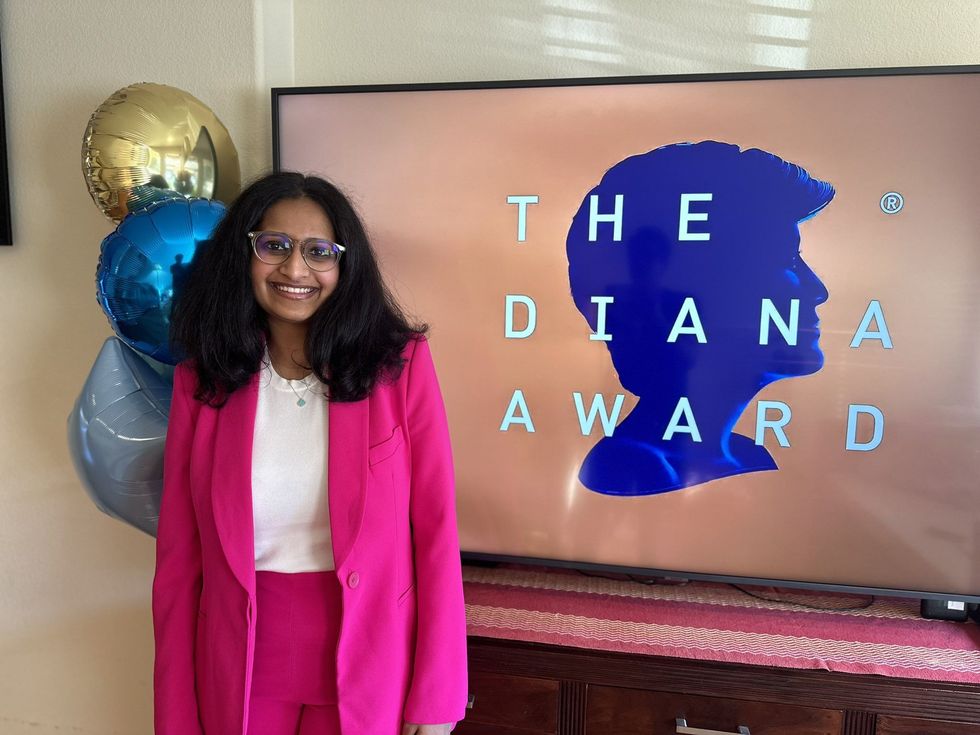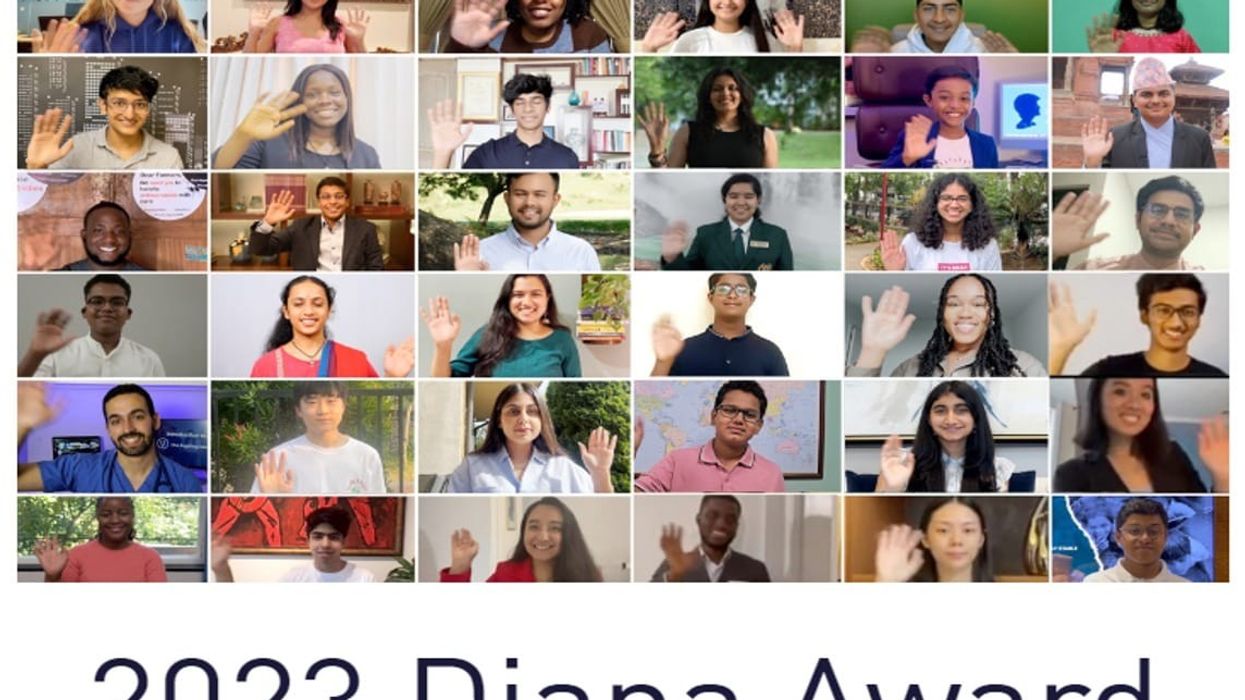SEVERAL youth activists, humanitarians and entrepreneurs from India were among the worldwide winners of the Diana Awards, created in memory of the late Diana, Princess of Wales.
Among the Indian winners is Sanya Sharma, founder of ‘Scarlet Udaan’, a global youth organisation that raises awareness on female genital cutting (FGC) and empowers young people to take action.
Saket has been recognised by the UN for her efforts and is a Gender Equality leader with UN Women.

Another winner is 14-year-old Divaa Uthkarsha, a student of NPS Rajajinagar, Bengaluru, for her humanitarian project, Project Surya, in healthcare for underprivileged children suffering from diabetics in Karnataka.
“This award wouldn’t have been possible without the support of my mentors at 1M1B. I conceptualised my project at the 1M1B Future Leaders programmes and got outstanding mentorship to execute,” said Uthkarsha.
The 1M1B or One Million for One Billion is a UN accredited not-for-profit organisation that mentors youth under the Future Leaders Programme. Under Project Surya, Uthkarsha has donated more than 500 insulin syringes to poor diabetic children.
“Over the last four years, eight 1M1B students have been recognised by the Diana Awards and this is a matter of pride for all of us. 1M1B’s goal is to empower and activate young people to become human-centred leaders is core to our mission,” said Manav Subodh, Founder, and chief mentor of 1M1B.
“These young people demonstrate that young people have the power to change the world; a belief also held by Diana Princess of Wales. We know by receiving this honour they will inspire more young people to get involved in their communities and begin their own changemaking journey,” said Tessy Ojo CBE, CEO of the Diana Award.
The 2023 roll call of Diana awards honoured exceptional young people, who have demonstrated their ability to inspire and mobilise new generations to serve their communities and create long-lasting change on a global scale.
Some of the other Indians on the roll call include Amey Agarwal, who battled nephrotic syndrome for 15 years, and has raised funds and sponsorships enabling successful kidney transplants through non-profit organisation ‘Nephrohelp’.
The others are Gunisha Aggarwal, who founded the ‘HELP Chennai initiative’, Joy Agrawal for ‘Project Gyan’, Uday Bhatia for his brand ‘Uday Electric’, Rhea Chopra, founder of ‘MyBody’, Saanvi Dhingra, who founded the non-profit organisation ‘Cinderella’s Got Wings’, Taarush Grover, who founded not-for-profit organisation ‘Volanity’, Manasi Gupta founder of ‘Huesofthemind Foundation’, Riddhi Javali, who founded ‘Project Repeat’, Anika Jha for ‘cHHange – It’s Normal’, Het Joshi who founded the ‘Adira Foundation’ non-profit, Swetha Kannan for ‘The Lalitha Foundation’, Haniya Kaur, co-founder of the non-profit organisation ‘Ladki Padhao’, Jivya Lamba for ‘WeCycle’ campaign, Tarini Malhotra for ‘Nai Subah Foundation’ educational institution, Prachi Mishra founder of ‘Project Nilay’, Pawan Patil for Tubelight Foundation for Social Innovations, Agastya Sinha for ‘The Cloud Canvas’ inclusive learning platform, Dev Shah, a child prodigy in chess for the ‘Nirmaan Charitable Trust’, Nirvaan Somany for ‘Project Jeans – Blue to Green’ and Addvika Vikram Agarwal who drives change through their community work.
(PTI)














